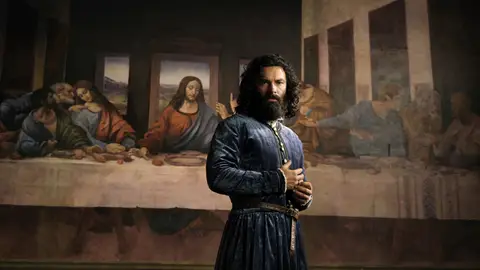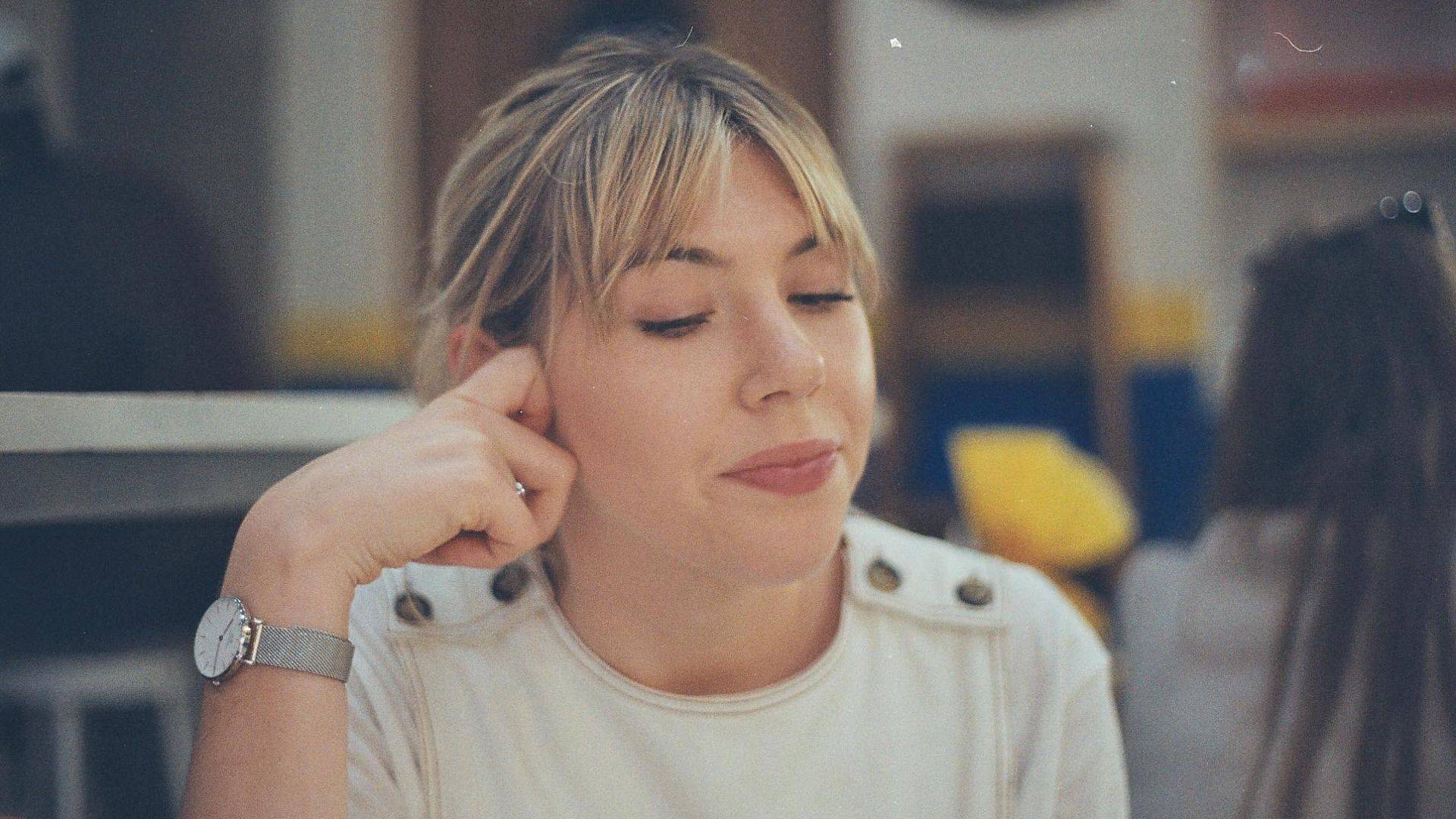The Audacity Of The Biopic

I bet you can think of several biopics that have crashed and burned in recent years. (I’ll just leave this here.) To be fair, it’s not entirely the filmmakers' fault – the genre is notoriously tricky. Biopics must portray their real-life subject with some semblance of truth, all the while invoking just enough creative license to weave a story compelling enough for today’s restless audiences to see it through. I suspect this tightrope gets trickier still when your subject is widely considered the greatest artist who ever lived – whose story (much of which is still unknown, by the way) took place 500 years ago. This was the head-scratcher facing creators Frank Spotnitz (The X-Files, The Man in the High Castle) and Steve Thompson (Sherlock, Doctor Who) when they were tapped to write Leonardo, a historical drama centred on Leonardo da Vinci’s life in Renaissance Florence.
Leonardo tilts between deep character study and murder mystery, leaning heavily on both fact and fiction (you caught ‘murder mystery’, right?) across its eight episodes. With the series arrival to Paramount+, I spoke to Frank and Executive Producer Freddie Highmore (who also stars in the series) about the chutzpah needed to take on this kind of biopic, and how one can feasibly do any kind of justice to the legend of Leonardo da Vinci.
MTV Australia: Leonardo is a huge project. Why did you want to tell this story?
Frank Spotnitz: Well, I have to say I was a bit afraid of this project, because I thought it would be so difficult to not only tell a story about an artist, but to tell a story about this artist. One of the most unbelievable human beings who ever lived – he was so good at so many things. But once I got over my hesitation, I was so inspired and moved by him, by the obstacles he had to overcome personally, being an illegitimate child, and a gay man, and an outsider, and by the incredible dedication that he had to capturing beauty, and to truth in all things.
And I just continue to be inspired by him now especially, in the time we're living in, it just feels like being reminded that the best of Western civilization is a dedication to beauty and truth, it seems. Sadly, it’s especially relevant and timely right now.
Freddie Highmore: I feel it’s an incredibly timely and modern version of Leonardo and that's what attracted me to the project too. When we think of Leonardo da Vinci, I don't think an image of him immediately comes to mind. It's The Mona Lisa or it's The Last Supper or [another] work of his, but not of him.
The show strips back that enigmatic personality to reveal the truth that is, I think, relevant to us nowadays. As Frank was saying: he's an illegitimate child, he's a gay man. He's very much this outsider. And that's perhaps a version that's purposely not been discussed over the course of many years. I think it's necessary and exciting to bring that to the screen today.
Frank, you spoke about the weight of undertaking a project about such an important figure. How did you approach balancing the truth with telling a good story?
Frank: Well, it's funny because I think Steve Thompson, my co-creator and I, both imagined when we started this project, we were going to be completely true to the facts. But then as we began doing the research, we realised there's just so many facts we don't know. There's so many holes in his historical record. And at first it was sort of frustrating, and then we realised, well, these are questions that are demanding answers from us as storytellers. And so then we became quite excited about the prospect of filling in the blanks, if you will.
And then, the other thing I think we started to realise was that so many people's stories are not told by history. Take this character, Caterina da Cremona. We know she was real, we know she posed for Leonardo and we know she was important to him. History chose not to tell us anything else about her. And you realise this is a chance for you, with your imagination, to rescue somebody who traditional historians didn't deem important enough to write about. And so in a way, even though there's a significant amount of fiction in the story, there's also a weird way in which fiction serves the truth in ways that you couldn't, if you were being, “accurate” to the written history.
We have to ask about Aidan Turner; why’d you cast him in this role and what was it like working with him?
Frank: The casting process for the Leonardo role was daunting because we knew how difficult it would be. But I have to say, when Aidan read it and wanted to do it, we were high-fiving each other, because we thought he is such a great choice for this. And it is a fact that Leonardo was a very good-looking man, which of course Aidan is, but much harder than that is to bring the intelligence and the intensity and to make us believe that he really was one of the smartest people who ever lived. And I think Aidan approached the role with such seriousness and purpose that he really delivered that. I don't question it. I have to say, I buy into him almost immediately in the role.
Freddie: Yeah. Aidan – I feel very lucky to have shared so many scenes with him or that all of my scenes were predominantly alongside him. He's really brilliant I think, as Leonardo, and brings this vulnerability to him and an intensity at the same time. There's a kind of softness to his portrayal: this spiritual deeply emotional artist and also this fierce intelligence to him that is centered on this constant belief that what he's doing is right as he fights and rails against the status quo at the time. But yeah, the scenes that we got to share were incredibly well written, and great fun to perform.
Have you learned anything personally from this journey and from Leonardo’s story?
Frank: That's such a good question. I think I've been reminded of things that I suppose I knew, but I haven't thought about in a long time. I think we live in such a cynical, jaded age, full of irony and cool, distant judgment of things. And here's a guy who, there is no irony. There's not much humour either in him, which Caterina has in spades, as a character. But there's this dedication, this devotion to truth. And what I was reminded of was: this is what Western civilisation should be. This is the best of us. He is the best of us. And five centuries later, he still stands up to me as a model of what we should all aspire to be, and to emulate and to honour.
Words and interview by Alice Griffin, editor of this very site. Follow her on Twitter and Instagram @_alicegriffin.
The above conversation has been condensed and edited for length and clarity.
Editor’s note: Leonardo is now streaming on Paramount+. Paramount+ and MTV are both subsidiaries of ViacomCBS.





